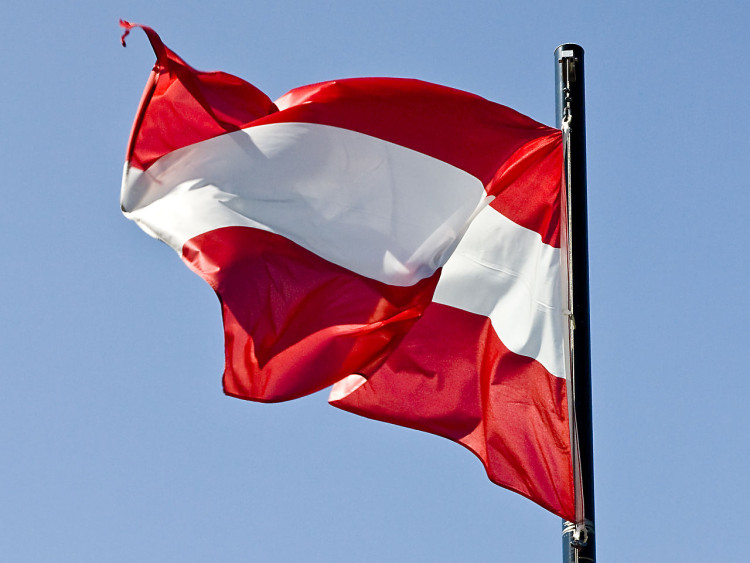An International Atomic Energy Agency (IAEA) team of experts found that Austria demonstrates commitment to the safe management of the predisposal of its radioactive waste, while also noting opportunities to enhance the regulatory framework and arrangements for eventual disposal.
The Integrated Review Service for Radioactive Waste and Spent Fuel Management, Decommissioning and Remediation (ARTEMIS) team this week concluded a ten-day mission to Austria. The mission was carried out at the request of the Federal Government of Austria and hosted by the Federal Ministry for Climate Action, Environment, Energy, Mobility, Innovation and Technology (BMK), the Austrian regulatory authority for radioactive waste and spent fuel management.
Austria does not operate any nuclear power plants. Low- and intermediate-level radioactive waste is generated from the use of radiation sources in medical and industrial applications, as well as in science and research, including at the TRIGA Mark II research reactor in Vienna, and from the decommissioning of facilities and laboratories from past research and development activities.
ARTEMIS missions provide independent expert advice from an international team of specialists convened by the IAEA to support a country with the management of radioactive waste. Reviews are based on the IAEA Safety Standards and technical guidance as well as international good practices. Results from the IAEA Integrated Regulatory Review Service (IRRS) mission to Austria, conducted in 2018, were taken into account where relevant.
The team, which comprised four experts from Canada, Finland, France and the United Kingdom, as well as three IAEA staff members, met with officials from the BMK, the Federal Ministry of Social Affairs, Health, Care and Consumer Protection, the Federal Ministry of Finance, Nuclear Engineering Seibersdorf — Austria’s central waste management organization — the TRIGA Center Atominstitut of the Vienna University of Technology, as well as the Austrian Agency for Health and Food Safety. Experts from Croatia and the European Commission were invited to observe the mission.
The ARTEMIS team found that Austria has developed a comprehensive strategy for the safe and responsible predisposal management of radioactive waste until 2045. They highlighted the modernization of waste treatment facilities in Seibersdorf, the reconditioning of waste for handling, transport or storage and the interim storage of this reconditioned radioactive waste as examples of effective management. The team also encouraged the Austrian Federal Government to update its national strategy to include a consolidated implementation plan for waste disposal — the final step in the management of radioactive waste.
“The team saw a high commitment to the safe radioactive waste management by the responsible organizations in Austria, including with their state-of-the-art radioactive waste predisposal management practices,” said the ARTEMIS team leader, Jussi Heinonen, Director at STUK, the Radiation and Nuclear Safety Authority of Finland. “They face a challenge in the effective implementation of waste disposal and we have focussed our recommendations on a clear regulatory framework and implementation plan for disposal.”
Mathilde Prevost, IAEA coordinator of the ARTEMIS mission to Austria, highlighted the establishment of the Austrian Board for Radioactive Waste Management in 2021 as a positive action. “The Board is seeking to find an optimal solution for disposal considering the latest scientific knowledge and socio-economic aspects. This is a positive step towards the definition of a consolidated implementation plan for disposal.”
In addition, main recommendations and suggestions provided by the team included:
- The Federal Government’s consolidated implementation plan for disposal should include interim targets, allocation of responsibilities and governance processes.
- The Federal Government should ensure that coordination or implementation of the national programme for radioactive waste management is effectively separated from the regulatory oversight of safety.
- The BMK should revise regulations to clarify regulatory expectation on periodic safety reviews and licensing of decommissioning activities or disposal facilities.
“We are proud of our state of the art, well-functioning waste management facilities in Seibersdorf, which are key to minimizing the quantity of radioactive waste in Austria. This puts us in an ideal position for upcoming decisions on the final disposal of the remaining waste,” said Verena Ehold, Head of the Department for Radiation Protection of the BMK. “The discussions with the experts during the ARTEMIS mission provided us with precious advice as we set about implementing our national programme for radioactive waste management.”
The final mission report will be provided to the Government in two months.
About ARTEMIS
ARTEMIS is an integrated expert review service for radioactive waste and spent fuel management, decommissioning and remediation programmes. This service is intended for facility operators and organizations responsible for radioactive waste management, as well as for regulators, national policy makers and other decision makers.
The IAEA Safety Standards provide a robust framework of fundamental principles, requirements, and guidance to ensure safety. They reflect an international consensus and serve as a global reference for protecting people and the environment from the harmful effects of ionizing radiation. Additional supplementing IAEA documents such as Nuclear Energy Series publications can be included in the review basis to supplement the safety standards series. They include practical examples to be used by owners and operators of utilities, implementing organizations, academia, and government officials in Member States, among others.


